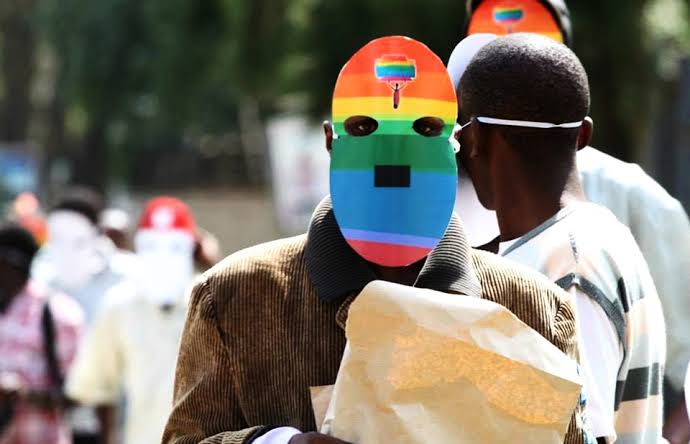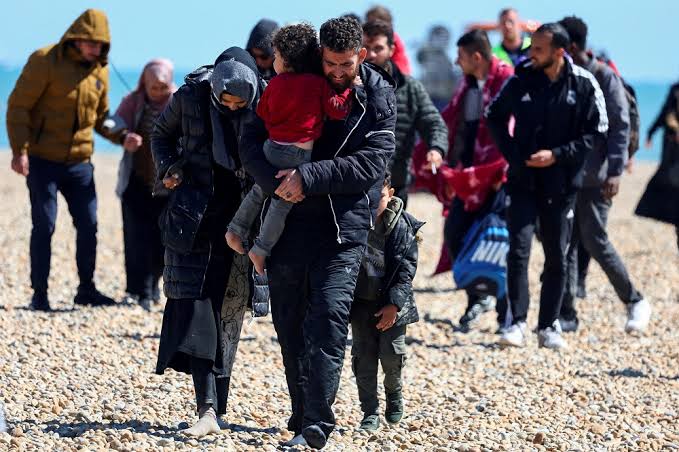
Faith Nyasuguta
A fresh study has raised concerns over the economic repercussions in Kenya in the case the government enacts legislation against Lesbian, Gay, Bisexual, Transgender and Queer (LGBTQ).
Currently, Kenya risks serious economic ramifications estimated at Ksh4.186 trillion ($28.13 billion) if President William Ruto assents to the Family Protection Bill fronted by Homa Bay Member of Parliament Peter Kaluma.
Economist and social scientist Professor Fred Ogola, while launching the report on Monday, noted that potential approval of anti-LGBTQ laws brings along numerous implications.
He pointed out investor sentiment and economic impact, prison infrastructure and inmate population, government expenditure and updating official documents as key concerns calling upon policy makers to trend with caution.
He went ahead to caution that, by passing the Linda Jamii Bill into law, Kenya will be in violation of the Article 7 of the United Nations Declaration of Human Rights which it has been a signatory since 1963.
Currently, Kenya depends a lot on donors, especially the European Union and USA. These donors have given pre-conditions for their continuous support and one of their conditions – unfortunately, – is ‘support for the LQBTQ’ which is presented as equal protection and non-discrimination of each individual irrespective of race, ethnicity, religion, sexual orientation, gender etc,” he stated.
“Violating any of these conditions may lead to withholding of financial support. Therefore, if the bill is signed into law, Kenya must be ready to lose around Ksh4.186 trillion.”
He detailed that the figure includes, “Approximately Ksh446.7 billion ($3 billion) per year in tangible benefits to Kenya’s economy and development from the US. Approximately Ksh446.7 million per year provided by the US humanitarian assistance to Kenya (based on the amount they gave to Kenya in 2022 alone) and Ksh713.2 billion ($4.8 billion) for development to aid Kenya by the European Union under Joint Cooperation Strategy 2018-2022.”
“Ksh2.4 billion ($16.13 million) humanitarian funding given by EU, Ksh238 million ($1.6 million) for disaster preparedness given by EU in 2023, Ksh148.9 billion ($1 billion) approved by IMF for Kenya in July 2023, Ksh82 billion ($551.1 million) approved by IMF to support Kenya’s efforts in building resilience to climate change, approximately Ksh11 billion ($73.9 million) for implementing the bill and billions for covering the loss in tourism sector due to negative perception towards Kenya by the international community,” the Professor explained.
According to the researcher, employment, capital, labour force, population and international trade are some of the economic indicators used to arrive at the latest findings
“Criminalisation of LGBTQ freedom through discrimination and exclusion not only affects individuals mental and physical health but also negatively impacts the national economy. LGBTQ students face unfair treatment in school which forces them to discontinue their education,” the report read in part.
“LGBTQI immigrants are perceived to be highly educated. Several prior literatures in US have suggested that LGBTQI people attain high level education and contribute high level labour force than general population. Anti-LGBTQI legislations suppress their freedom through homophobia, biphobia, transphobia and consequently diminish their capacity to contribute to the economy.”
“These losses carry significant costs in the national economy such as reduced or lost productivity, reduced or lost labour time, human capital underinvestment, and unfair allocation and distribution of resources. Diminishing returns caused by these costs means that the overall economic development is deterred.”
The fresh report comes in the wake of a highly contentious Family Protection Bill aimed at disallowing LGBTQ tendencies in the country.
The Bill proposes imprisonment extending to 50 years for non-consensual same sex acts.
RELATED:




